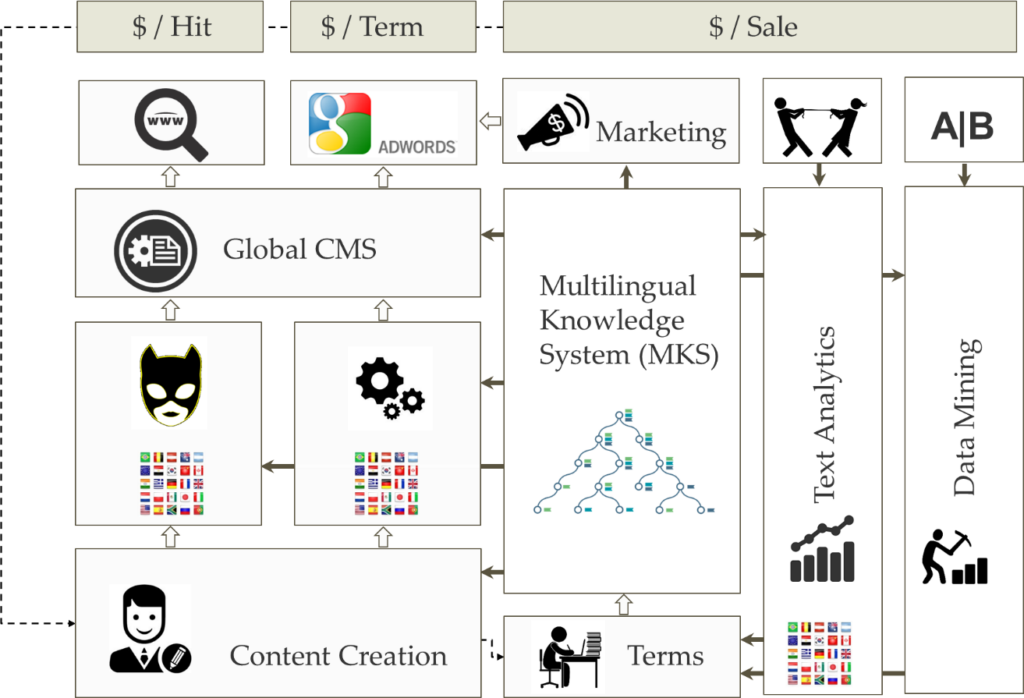
Cross-border e-commerce only results in growth and profit if customers can find the online shop and its products using their own language! Search Engine Optimization (SEO) and Search Engine Marketing (SEM) are the two main channels for being discovered. Therefore, language technology has become a main driver for cross-border sales because it enables multilingual SEO and SEM.
Smart terminology and keyword management is the decisive factor. Multilingual Knowledge Systems (MKS) support global online marketing in keyword translation, text analytics of used/searched for terms, data mining of A/B tests, and term performance evaluation.
Multilingual SEO and SEM
SEO requires the publishing of content which search engines consider relevant for users. The mechanics of SEO are relatively well understood. Basically, high quality content with relevant terms needs to be created and kept alive. This is done by using a content management system (CMS). When going cross-border, the CMS must handle multilingual content and therefore needs an automated translation workflow. The high visibility parts of the content need to be translated by humans, since search engines can detect machine translated content and rank it lower. Terminology management is crucial to ensure the usage of relevant terms.
SEM is actually all about terminology management. In SEM the performance of terms can be directly measured. Buying Adwords is costly and must thus result in a corresponding amount of orders. While in SEO a company might coin terms to set themselves apart of competition, in SEM it’s all about orders/term costs. This requires a precise understanding of which terms work well in the local market.
Keep up with Local Competition
The search engine ranking will be worse than the local competition if most of the links point back to the country where the company is headquartered. Therefore, cross-border e-commerce requires not only a language but also a country strategy. Content needs to link to local press, local user forums, blogs, social media, events, etc. Text analytics of content published by local competition and performance data mining of SEM terms produce valuable insights for developing and tuning such a strategy.
Optimize Online Marketing Globally
In most cases the tasks mentioned above are executed by local marketing teams in the respective countries. However this is expensive, potentially messy, and prevents cross-border e-commerce to benefit from economies of scale. Any better solution must thus support a unified global online marketing. Such a solution is necessarily supported by a Multilingual Knowledge System that enables marketing to operate centrally, in all languages of the targeted markets. The MKS also drives the collaboration with content creators and translators.
Solution Architecture for Global SEO/SEM
The following chart illustrates the architecture for managing global discoverability, the players and components, as well as the data flow:

The above solution, based on a Multilingual Knowledge System such as Coreon, enables Marketing to deliver global SEO/SEM. When will you free your online shop from language silos?
*Feature Image: Background photo created by 8photo – www.freepik.com


